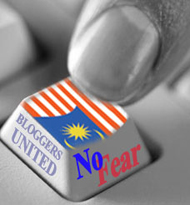The situation in Egypt is not subsiding, even after clashes between pro-Muslim Brotherhood protesters and supporters and Egyptian police and military, which saw carnage and massive violence in a few major cities when live ammunitions where used. In fact situation is getting worse as the protestors started to barricade themselves in a mosque.
BBC latest report
Gunfire heard at Cairo mosque siege
Last updated 8 minutes ago
Soldiers have been firing at the mosque’s minaret
Heavy gunfire has been heard at a mosque in Egypt’s capital, Cairo, following a stand-off with barricaded Muslim Brotherhood supporters.
Dozens have refused to leave the al-Fateh mosque, fearing for their safety.
TV pictures showed security forces firing at the minaret. State media said people were shooting from the mosque.
Meanwhile the interim PM proposed legally dissolving the Brotherhood, which has been demanding ousted leader Mohammed Morsi be reinstated.
The Brotherhood was officially dissolved by Egypt’s military rulers in 1954, but registered itself again as a non-governmental organisation earlier this year.
It has called for daily demonstrations since a crackdown on its protest camps in Cairo on Wednesday left hundreds of people dead.
Mr Morsi – Egypt’s first democratically elected president – was removed by the army last month and replaced with an interim government.
Chaotic scenes
Around the al-Fateh mosque, there are scenes of chaos. Tear gas has been fired into the building, and witnesses have seen live ammunition fired by both sides.
Al-Jazeera television called one woman inside the mosque on her mobile phone as the shooting began.
“Nobody here is safe, they are shooting inside the mosque,” she said, with loud firing heard in the background.
Egyptian police have been bringing some Morsi supporters out of the building – leading some, dragging others – but are then having to protect them from angry mobs armed with bats and pieces of wood who are trying to attack them, correspondents say.
BBC reporters in Cairo says the authorities want to secure all buildings to avoid a repeat of Muslim Brotherhood supporters forming more camps as they did after Mr Morsi was ousted.
Separately, the Egyptian authorities say they have arrested the brother of al-Qaeda chief Ayman al-Zawahiri.
Al-Fateh mosque, near Ramses Square, was turned into a field hospital on Friday after the square became the focus of clashes
Hundreds of Morsi supporters remained inside the mosque on Saturday morning after barricading themselves in overnight
As well as riot police, anti-Muslim Brotherhood protesters gathered outside the mosque to express their anger at the Morsi supporters inside
Security forces provided a cordon around the mosque
A small number of Morsi supporters left the mosque on Saturday morning, escorted through the anti-Muslim Brotherhood crowd by security personnel
For relatives of those still inside, it is a worrying time
Mohammed al-Zawahiri was detained at a checkpoint in Giza, near Cairo, because of his links to Mr Morsi, according to security officials.
Also on Saturday, the Muslim Brotherhood said on its Facebook page that Ammar Badie, the son of the movement’s spiritual leader, General Guide Mohamed Badie, was one of those killed during protests on Friday.
The Brotherhood said that Ammar Badie, 38, had died of a bullet wound in Ramses Square on Friday.
His father was arrested after the removal of Mr Morsi and charged with inciting violence. It has not been revealed where he is being detained.
The secretary-general of the Brotherhood’s Freedom and Justice Party, Mohammed al-Beltagi, says his 17-year-old daughter, Asmaa, died in earlier protests.
Escalation
Saturday’s violence come after days of unrest in Cairo and elsewhere in Egypt.
The escalation in tensions began on Wednesday, when armoured bulldozers moved into the two Cairo protest camps which had been occupied by pro-Morsi activists since he was ousted on 3 July.
The camps were eventually cleared, but not before at least 638 people were killed.
Mobs later carried out reprisal attacks on government buildings and police stations as well as churches belonging to the country’s Coptic Christian minority.
On Friday, hundreds of Muslim Brotherhood supporters gathered in Ramses Square for a “march of anger” about the bloodshed earlier in the week. At least 173 people died.
************
This ‘Arab Spring’ type of demonstration came after series of demonstrations held to protest against President Morsi’s reforming new laws to give the stare more abosulte power. As a result, a military coup d’état was staged with the disposal of President Morsi from power and a temporary government installed.
The conflict for control of power of Egypt between the Muslim Brotherhood and the military isn’t something new. As far back as the early sixties when Gamal Abdel Nasser staged a coup d’état and deposed the monarch, the political rivalry has stemmed it’s divide.
In fact, pro-Muslim Brotherhood elements staged the assassination of President Anwar Sadat on 6 Oct 1981.
The actions of the Egyptian temporary government and military to use deadly force to stop demonstrations and ‘terrorists’, is fully supported by King Abdullah of Saudi who described them as “haters and seditious”.
What happened in Egypt today is very appalling and shocking. However, it is not something new or in isolation. History have demonstrated that Arab Muslims have been using deadly force to resolve political conflict, even internally and between families. This is despite that they are Muslims in the Al Quran strictly prohibit killing of other Muslim, even in the situation of defense against aggression.
Second Ummayad Caliph Yazid Ibnu Muawiyah ordered his generals Ubaidullah Ibnu Zaid and Umar Ibnu to stop the movement of Saidina Hussain Ibnu Ali and his Hashemite clan caravan , either to Kufah or back to Mekah. On 10 Muharram 61H, cavalry forces of Ubaidullah and Umar attacked As-Rashidin Fourth Caliph Saidina Ali Ibn Abi Talib’s son and his caravan of Hashemite Clan. Rasulullah’s grandson Hussain and infant -great grandson Ali As Afghar were killed, along 70 others in the Battle of Karbala.
If the Muslim Brotherhood plans to re-enact and continue the ‘Arab Spring’ where they last left it, then most likely they would not resolve anything. This is because this round the military is more ready. Even there erupt another civil war in Egypt, the Muslim Brotherhood supporters would not proceed much considering the recent experience in the Syrian Civil War where they western backers simply abandon them half way.
The Egyptians must find ways to at least get wiser after the event. Aggression has never brought then any progressive outcome.







History Hedonistically Heuristic
The situation in Egypt is not subsiding, even after clashes between pro-Muslim Brotherhood protesters and supporters and Egyptian police and military, which saw carnage and massive violence in a few major cities when live ammunitions where used. In fact situation is getting worse as the protestors started to barricade themselves in a mosque.
BBC latest report
This ‘Arab Spring’ type of demonstration came after series of demonstrations held to protest against President Morsi’s reforming new laws to give the stare more abosulte power. As a result, a military coup d’état was staged with the disposal of President Morsi from power and a temporary government installed.
The conflict for control of power of Egypt between the Muslim Brotherhood and the military isn’t something new. As far back as the early sixties when Gamal Abdel Nasser staged a coup d’état and deposed the monarch, the political rivalry has stemmed it’s divide.
In fact, pro-Muslim Brotherhood elements staged the assassination of President Anwar Sadat on 6 Oct 1981.
The actions of the Egyptian temporary government and military to use deadly force to stop demonstrations and ‘terrorists’, is fully supported by King Abdullah of Saudi who described them as “haters and seditious”.
What happened in Egypt today is very appalling and shocking. However, it is not something new or in isolation. History have demonstrated that Arab Muslims have been using deadly force to resolve political conflict, even internally and between families. This is despite that they are Muslims in the Al Quran strictly prohibit killing of other Muslim, even in the situation of defense against aggression.
Second Ummayad Caliph Yazid Ibnu Muawiyah ordered his generals Ubaidullah Ibnu Zaid and Umar Ibnu to stop the movement of Saidina Hussain Ibnu Ali and his Hashemite clan caravan , either to Kufah or back to Mekah. On 10 Muharram 61H, cavalry forces of Ubaidullah and Umar attacked As-Rashidin Fourth Caliph Saidina Ali Ibn Abi Talib’s son and his caravan of Hashemite Clan. Rasulullah’s grandson Hussain and infant -great grandson Ali As Afghar were killed, along 70 others in the Battle of Karbala.
If the Muslim Brotherhood plans to re-enact and continue the ‘Arab Spring’ where they last left it, then most likely they would not resolve anything. This is because this round the military is more ready. Even there erupt another civil war in Egypt, the Muslim Brotherhood supporters would not proceed much considering the recent experience in the Syrian Civil War where they western backers simply abandon them half way.
The Egyptians must find ways to at least get wiser after the event. Aggression has never brought then any progressive outcome.
- Commentary
on August 17, 2013 at 21:00 Comments (3)